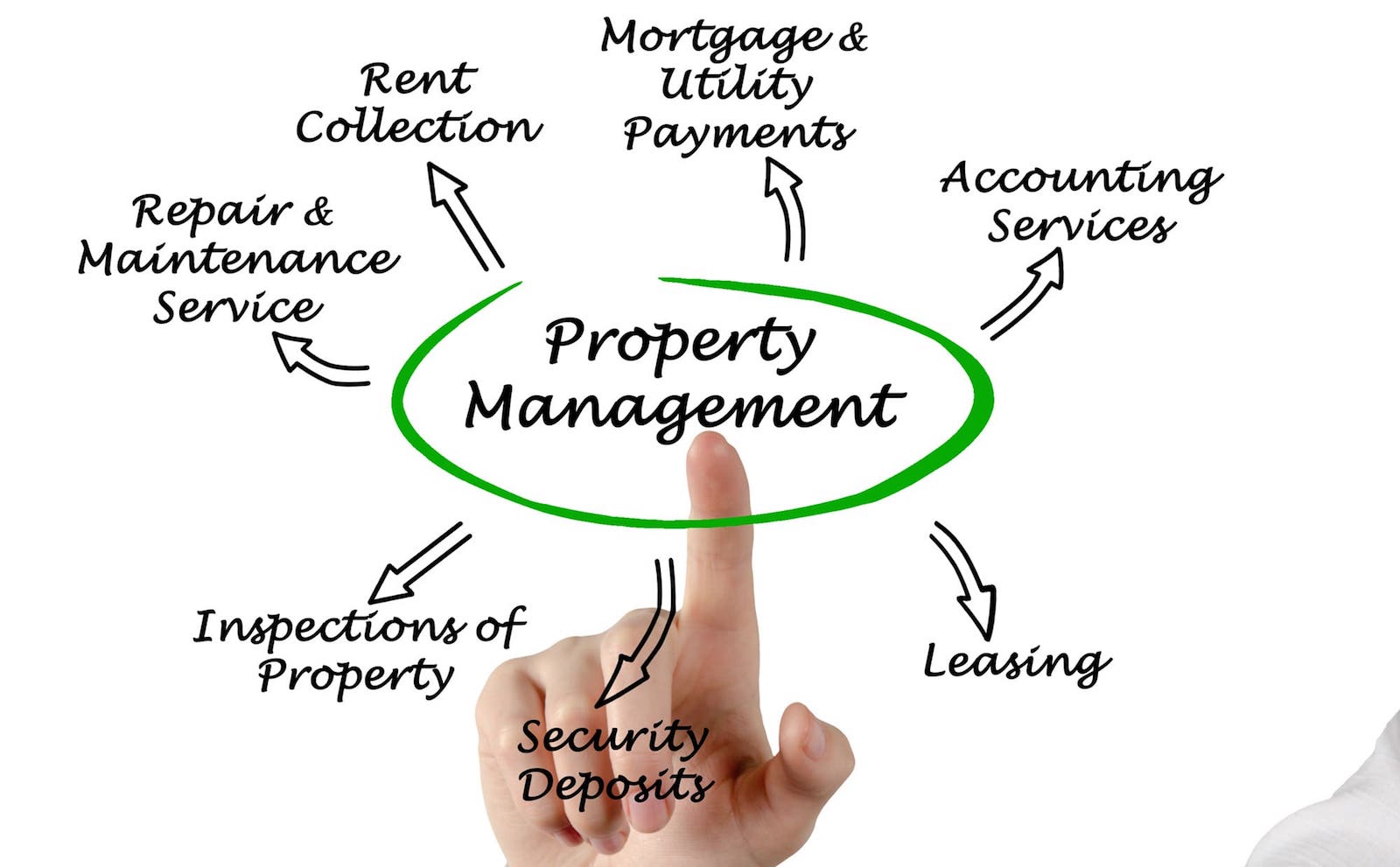The 4-Minute Rule for Property Management Services
Table of ContentsAll about Property Management Services


Property administration experts, additionally called home managers, play a crucial function in maintaining the worth, functionality, and earnings of property properties. They work as the intermediary between building proprietors and renters, making certain smooth operations while safeguarding the investment. The scope of duties for residential property monitoring experts is broad, spanning economic, functional, legal, and critical tasks. Understanding these responsibilities can offer understanding into why hiring skilled specialists is vital for both household and business residential property owners.Financial ResponsibilitiesA core obligation of property monitoring specialists is overseeing the economic elements of a property. This starts with setting appropriate rental prices by performing market evaluation and understanding comparable residential property values in the area. Residential or commercial property supervisors assess regional demand, seasonal fads, and financial aspects to determine prices that are affordable yet lucrative. Proper pricing ensures high tenancy prices while making the most of income for the property owner.Once prices are developed, residential or commercial property administration professionals deal with rental fee collection. They apply constant systems to make sure lessees pay in a timely manner, address late repayments properly, and implement lease terms when needed. Beyond lease collection, residential or commercial property managers are accountable for budgeting. They track costs such as repair work, upkeep, utilities, residential or commercial property taxes, and insurance policy costs. By projecting capital and keeping accurate financial records, they supply property owners with a clear understanding of residential property performance.Financial coverage is an additional crucial task. Building managers prepare monthly, quarterly, and annual reports summing up revenue, expenses, and internet operating income. These reports allow proprietors to make educated choices about their investments. In addition, home supervisors commonly coordinate with accountants or tax obligation professionals to make sure compliance with regional, state, and government tax regulations, lessening liability threats for the residential property owner.Operational ResponsibilitiesProperty administration experts look after the daily procedures required to keep and boost the property's condition. Repair and maintenance are a considerable part of their duties. This involves routine inspections to recognize possible concerns, preventative upkeep to avoid pricey repair work, and reacting promptly to renter upkeep demands. Building managers coordinate with specialists, suppliers, and provider to perform work effectively and within budget.Another operational task is managing renter relationships. Residential or commercial property supervisors take care of complaints, inquiries, and demands, working or ensuring a favorable living setting. Efficient interaction fosters occupant satisfaction and retention, which is critical for lessening vacancies and preserving regular profits streams. Property supervisors also perform extensive screening of prospective occupants, examining history checks, credit report history, work confirmation, and rental references to pick reputable occupants.Compliance with residential or commercial property regulations is an essential functional responsibility. Property managers guarantee that homes fulfill local building codes, safety standards, and ease of access requirements. They remain up-to-date with adjustments in housing laws, zoning legislations, and landlord-tenant regulations, making certain that both the residential or commercial property and its management techniques continue to be legal. This consists of correct handling of down payments, eviction procedures, and fair housing regulations.Leasing and Advertising ResponsibilitiesMarketing the home efficiently is an additional crucial responsibility. Property administration professionals create and carry out approaches to draw in lessees through multiple networks, including on-line listings, social networks, signage, and traditional advertising and marketing. They craft engaging residential property summaries, emphasize crucial facilities, and use expert digital photography to showcase the residential property's appeal.The leasing process is additionally managed by building specialists. They prepare lease contracts, explain conditions and terms to tenants, and make sure all lawful paperwork is precisely completed and authorized. Lease renewals are checked to preserve high occupancy prices, and building managers commonly negotiate terms that profit both the owner and the lessee. By handling this process skillfully, home supervisors mitigate threats linked with lawful disagreements and lessee dissatisfaction.Strategic ResponsibilitiesBeyond day-to-day management, residential property monitoring experts give critical guidance to boost long-term residential or commercial property worth. They advise owners on funding renovations, improvements, and home upgrades that can enhance rent potential or bring in higher-quality renters. They may carry out marketing research to identify emerging patterns and possibilities for residential or commercial property expansion or diversification.Risk monitoring is an essential strategic obligation. Building managers determine possible threats to the property's safety, economic stability, or lawful standing and implement measures to reduce these risks. This includes assessing insurance coverage, checking ecological risks, and enforcing safety and security methods. Their strategic input helps building owners secure and expand their financial investment portfolio over time.Administrative ResponsibilitiesProperty monitoring involves extensive administrative work. Residential or commercial property supervisors preserve thorough documents of leases, monetary deals, maintenance requests, evaluations, and occupant communications. Exact documentation supports legal compliance, offers responsibility, and acts as a resource in settling disputes or dealing with occupant concerns.Additionally, property managers coordinate with other experts, such as genuine estate representatives, accounting professionals, lawyers, and insurance policy providers, to make sure seamless procedures. They might also take care of supplier contracts, service arrangements, and purchase of products needed for building upkeep. With these management functions, residential or commercial property supervisors develop a structured and reliable administration system that benefits both property owners and tenants.Tenant Retention and Neighborhood ManagementA substantial facet of residential or commercial property monitoring is tenant retention. Residential or commercial property managers carry out methods to make certain renters feel valued and satisfied, including prompt upkeep, receptive communication, and neighborhood engagement. In multi-unit or industrial residential properties, residential property managers may organize events or campaigns that foster a sense of area, adding to occupant loyalty and minimizing turn over rates (Property Management Services).They additionally moderate problems in between renters when disagreements arise, utilizing problem resolution skills to maintain consistency within the home. By proactively dealing with renter problems and promoting positive connections, building managers decrease job prices and maintain a secure revenue stream for property owners.Sustainability and Modern technology IntegrationModern property management significantly includes sustainability practices. Residential property managers may apply energy-efficient upgrades, water preservation systems, and eco-friendly waste monitoring practices. By advertising sustainable procedures, home managers help reduce operational costs, improve property value, and attract ecologically conscious tenants.Technology assimilation is also an expanding obligation. Building administration software enables supervisors to track leases, settlements, maintenance demands, and interaction effectively. Automated systems improve reporting, enhance information precision, and enhance the overall lessee experience. Innovation also makes it possible for residential property supervisors to evaluate performance metrics and identify chances for renovation, guaranteeing that the building stays competitive in the market.Emergency and Situation ManagementProperty administration experts need to be prepared to handle crises and emergencies. This includes natural disasters, fires, flooding, or other unforeseen occasions that may disrupt operations or harm the residential or commercial property. Building managers develop emergency situation response plans, coordinate with regional authorities, and ensure that tenants are educated and secure during such events. Their capacity to react swiftly and successfully reduces damages and preserves lessee confidence.Legal and Governing ComplianceCompliance with regional, state, and government regulations is an essential duty. Property management specialists look at this website make sure that all methods follow landlord-tenant legislations, fair real estate regulations, zoning ordinances, and security codes. They take care of leases, deal with evictions legally, and ensure appropriate paperwork for all property-related deals. Remaining educated about changing policies secures the homeowner from lawful disagreements, fines, or penalties.ConclusionProperty management professionals put on numerous hats, stabilizing operational, economic, lawful, calculated, and administrative duties. Their duty expands past basic oversight; they are important to optimizing building value, making certain lessee fulfillment, and mitigating threats. By managing the complexities of residential or commercial property operations, residential property managers make it possible for proprietors to concentrate on more comprehensive financial investment objectives while making certain that buildings are successfully maintained and profitable.From occupant testing and lease collection to advertising, upkeep, compliance, and lasting critical planning, residential property administration professionals supply comprehensive solutions that protect and improve the value of realty investments. Their experience is essential for navigating the challenges of residential or commercial property ownership, and hiring seasoned residential or commercial property management professionals is often an essential factor in achieving continual success in the property sector.In short, residential or commercial property administration experts guarantee that residential properties are not only conserved but optimized, producing environments that are secure, well-functioning, and financially rewarding. Their diverse responsibilities require a combination of technological abilities, legal expertise, economic acumen, and interpersonal abilities. Inevitably, reliable property monitoring safeguards financial investments, optimizes returns, and adds to the long-term success of building owners in a significantly open market.